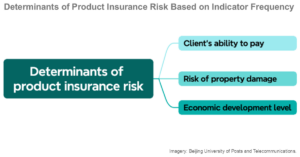 Catastrophic losses from extreme weather events are on the rise across the world, severely testing the capital reserves and claims-paying capability of many insurers. The total damage and economic loss from the Los Angeles fires alone is now estimated to be between $250 billion and $275 billion. Of this, insurers are expected to see at least $30 billion in reported losses and at least another $10 billion for uninsured losses. As the effects of global climate change become more pronounced, the frequency and intensity of extreme weather events are increasing, posing significant challenges to the insurance industry and creating an urgent need for sustainable development. Such catastrophic weather events are increasingly becoming an existential crisis for property owners and insurers.
Catastrophic losses from extreme weather events are on the rise across the world, severely testing the capital reserves and claims-paying capability of many insurers. The total damage and economic loss from the Los Angeles fires alone is now estimated to be between $250 billion and $275 billion. Of this, insurers are expected to see at least $30 billion in reported losses and at least another $10 billion for uninsured losses. As the effects of global climate change become more pronounced, the frequency and intensity of extreme weather events are increasing, posing significant challenges to the insurance industry and creating an urgent need for sustainable development. Such catastrophic weather events are increasingly becoming an existential crisis for property owners and insurers.
Peng, Lianshu, Yida Wang, and Zhensheng Pan. "A Modeling Study of Insurance and Real Estate Risk Assessment in the Context of Global Climate Change". Beijing University of Posts and Telecommunications. 2024. https://drpress.org/...
Posted on 15/01/25
Recent Abstracts
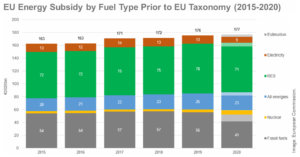
EU to Gut the Principle of Sustainable Taxonomy with Inclusion of Nuclear and Gas
EU taxonomy was intended to provide a system for the classification of environmentally and financially sustainable economic activities. It is essentially a green label for the investment of over a trillion euros. Also called the "Sustainable Finance Taxonomy", it's about subsidized financing and lots of money. The t ...
Posted on 07/01/22
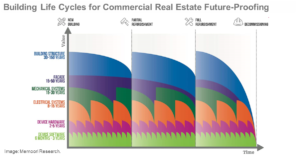
Deep Dive: Private Real Estate’s Obsolescence Problem
Asset managers conduct annual portfolio reviews and tenant engagement surveys to identify and manage potential obsolescence issues. Future pricing is a concern and they understand the risk that many obsolete assets may soon be on the market at the same time, pushing prices down. Thus, lenders and investors are focusi ...
Posted on 06/01/22
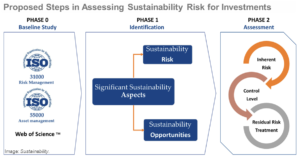
Climate Change and Sustainability Disputes between Foreign Investors and States
Countries are transitioning to low carbon, sustainable and climate-resilient economies. The action taken by states on climate change and sustainability will affect the profitability and viability of many existing investments and commercial arrangements. Significant changes to the investment environment in the name of ...
Posted on 05/01/22

Environmental Performance of Products & Businesses – Substantiating Claims
The European Commission (EC) consulted with the general public and key stakeholders to regulate green claims in marketing and combat greenwashing. The consultation assessed the reliability and scope of current labels/initiatives and reviewed the current greenwashing practices that mislead market actors and reduce sust ...
Posted on 04/01/22

A Look Back at Significant Decisions in Climate Litigation in 2021
2021 was a significant year for climate litigation. This post highlights some of the most significant decisions in climate litigation and their implication for the future. The verdicts show that courts increasingly recognize climate change as a human rights issue and that judges are prepared to order both states and ...
Posted on 04/01/22
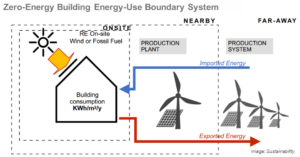
Brussels’ Big Building Grab
The EU plans to regulate the renovation of already existing, poorly insulated or ventilated buildings to become carbon neutral by 2050. The "nearly net-zero" energy efficiency standards for new builds are set to be strengthened. For the initiative, the Commission will make up to €150bn in regional development, cohesi ...
Posted on 03/01/22

Transforming Existing Hotels to Net Zero Carbon
The majority of hotel carbon emissions result from operational energy consumption. With 80% of hotels in 2050 already in existence, this white paper sets out a high-level framework and prioritizes interventions throughout the remaining life cycle of the existing building stock. The paper addresses the net-zero carbon ...
Posted on 31/12/21

A Comprehensive Review of Deterrents to the Practice of Sustainable Interior Architecture and Design
Sustainable Interior Architecture and Design (SIAD) impacts energy conservation as well as occupants’ satisfaction, comfort, and physical and psychological wellbeing. Although its adoption is necessary for achieving the sustainable development and operation of the built environment as well as the relevant sustainable ...
Posted on 30/12/21
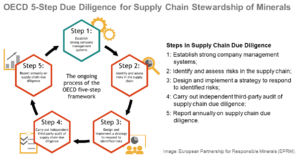
Due Diligence and Ongoing Stewardship When Engaging on Supply Chain Risk
Stewardship is the use of influence by institutional investors to maximize long-term value, including the value of common social, environmental and economic assets on which returns and stakeholder interests depend. Stewardship and ESG incorporation calls for the inclusion of ESG factors in investment and capital alloc ...
Posted on 29/12/21
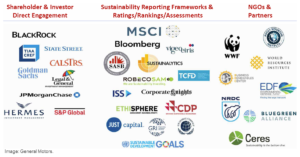
‘Sustainable’ Companies Face Increased Pressure to Justify the Sustainability Label Amid Investor Challenges and Demands for Greater Risk Assessment and Disclosure
Companies globally are increasingly required to provide disclosure that is reliable, consistent, and comparable. They are facing increased pressure across the world to justify their sustainability label – "green labeling". The US Securities and Exchange Commission (SEC) has also voiced the importance of clear, consis ...
Posted on 28/12/21
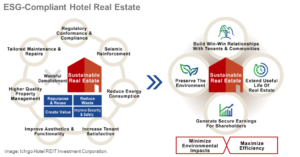
ESG in Hotel Real Estate: Understanding ESG & the Hotel Asset Lifecycle
This article explores ESG – environmental, social and (corporate) governance – in the hotel sector by examining the ESG factors in hospitality and reviewing the role of ESG in a hotel’s life cycle. While environmental needs are the most pressing and environmental efforts are more measurable, social and governance fact ...
Posted on 27/12/21
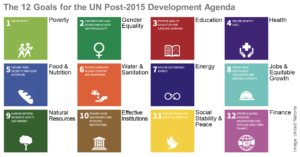
A New Global Partnership: Eradicate Poverty and Transform Economies through Sustainable Development
Published in 2013, the report contributed to the development of a post-2015 agenda and the Paris Agreement adopted in 2015 by the United Nations. It set out a universal agenda to eradicate extreme poverty globally by 2030 and deliver on the promise of sustainable development. The report addressed issues that are crit ...
Posted on 24/12/21

Aufgefallen in… Rimini
On the Italian Adriatic coast in the province of Rimini, more than 350 hotels are up for sale. According to estimates, €320 million would be enough to buy a good third of them. In Rimini alone, 159 buildings are now on the market, several of them with four and five stars. It is not only the Corona pandemic that has ...
Posted on 23/12/21
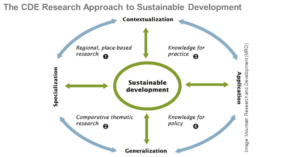
Special Issue : Sustainable Development: Challenges and Opportunities
The overall goal of sustainable development is to meet our needs today without compromising the ability of future generations to meet theirs. The implementation of the sustainable development concept is our greatest challenge. This special issue invites researchers to the scientific debate on its challenges and oppor ...
Posted on 22/12/21
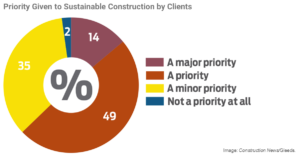
Factors Influencing Clients’ Commitment to Sustainable Construction Practices
Successful sustainable development of projects largely depends on the level of clients’ commitment to sustainable construction practices. This survey found that the most influential factors were client knowledge and awareness; cost implication and mechanism of financial involvement; economic value and return on invest ...
Posted on 20/12/21

